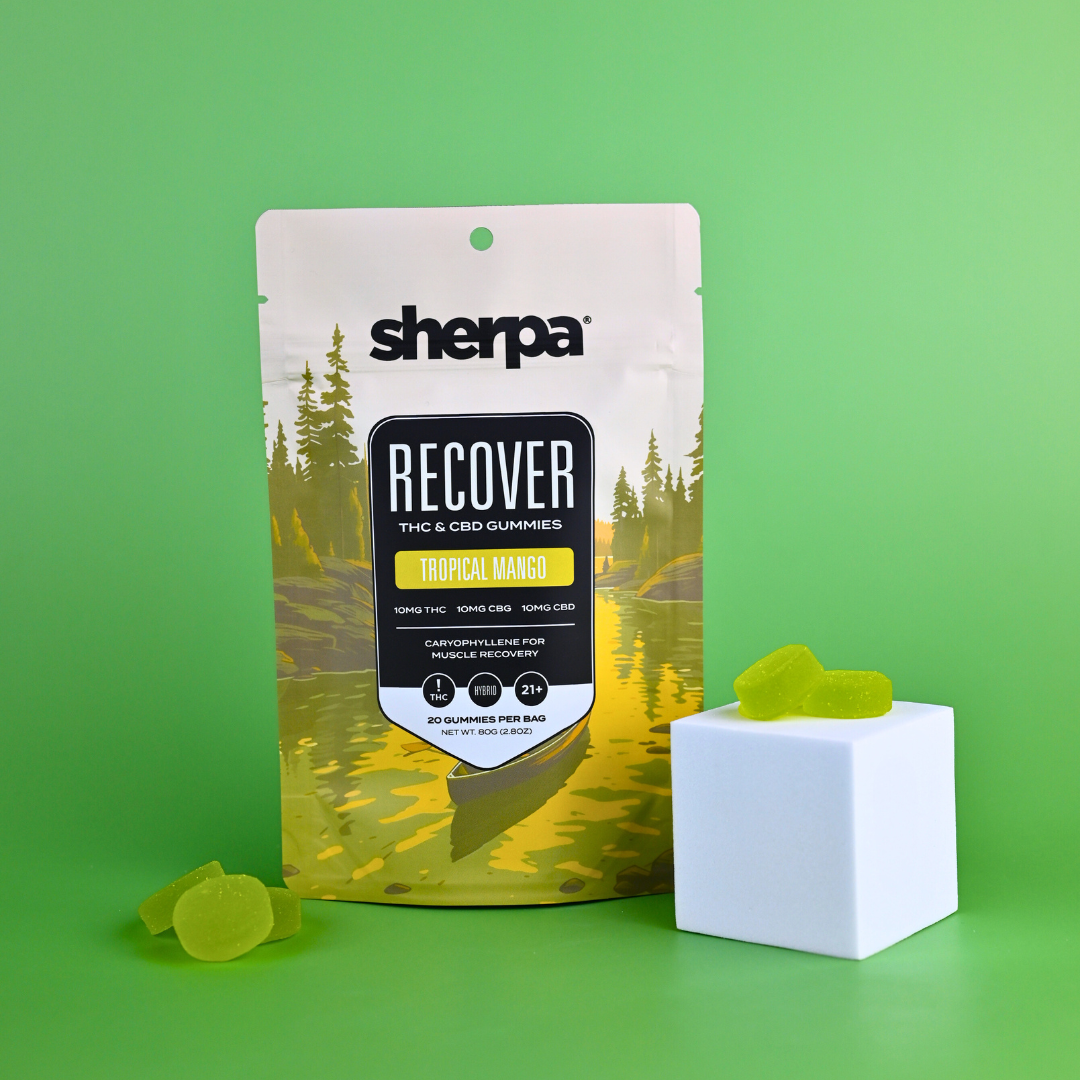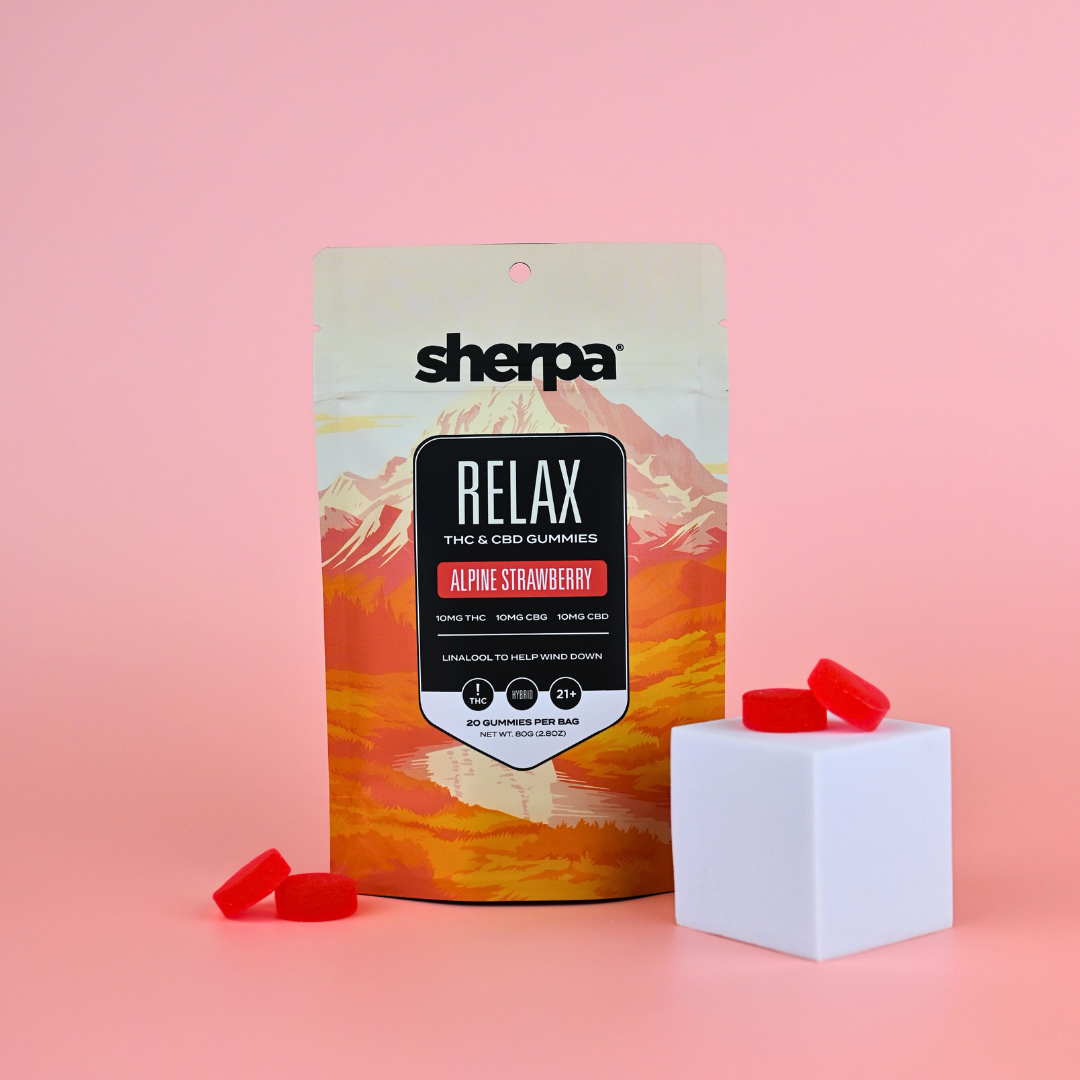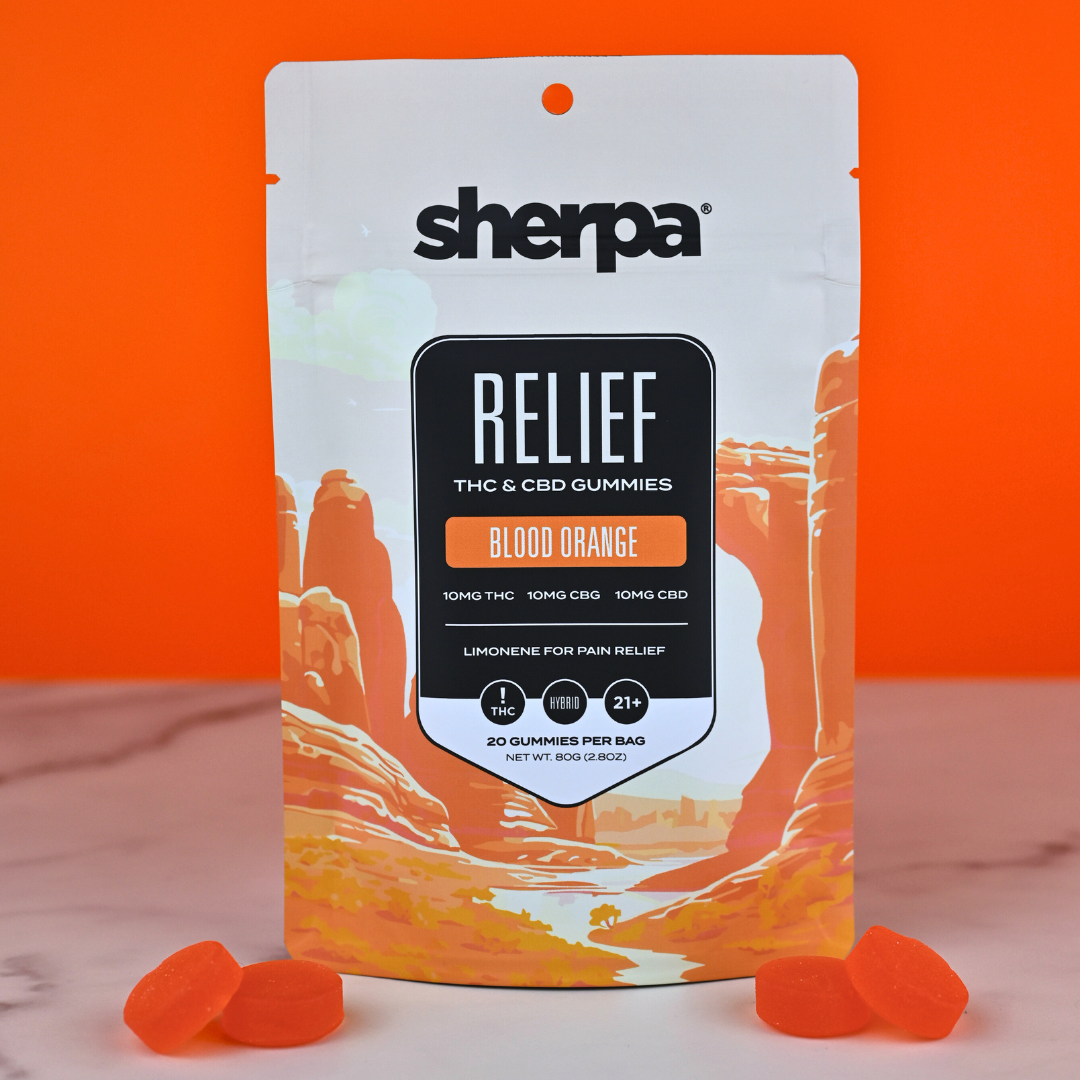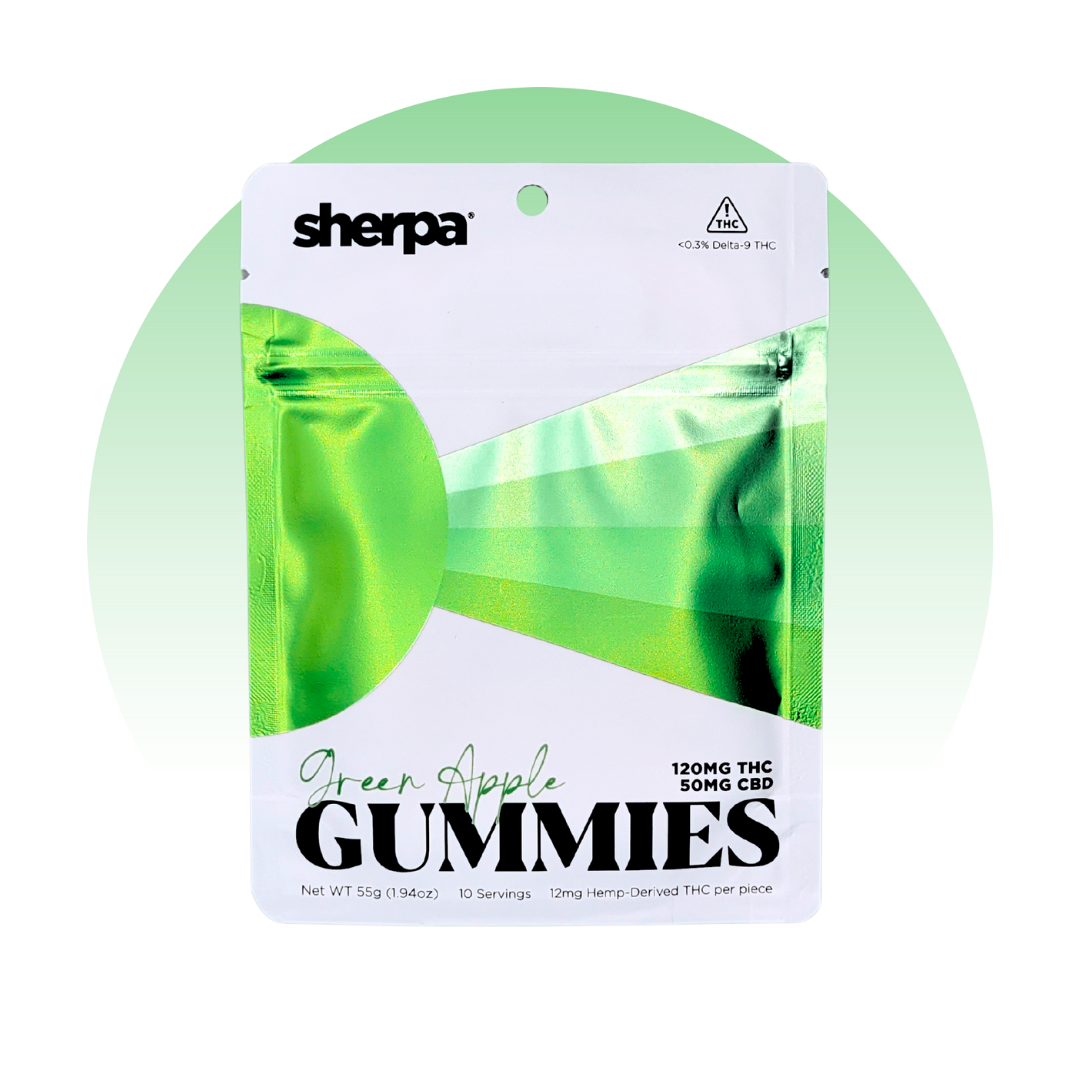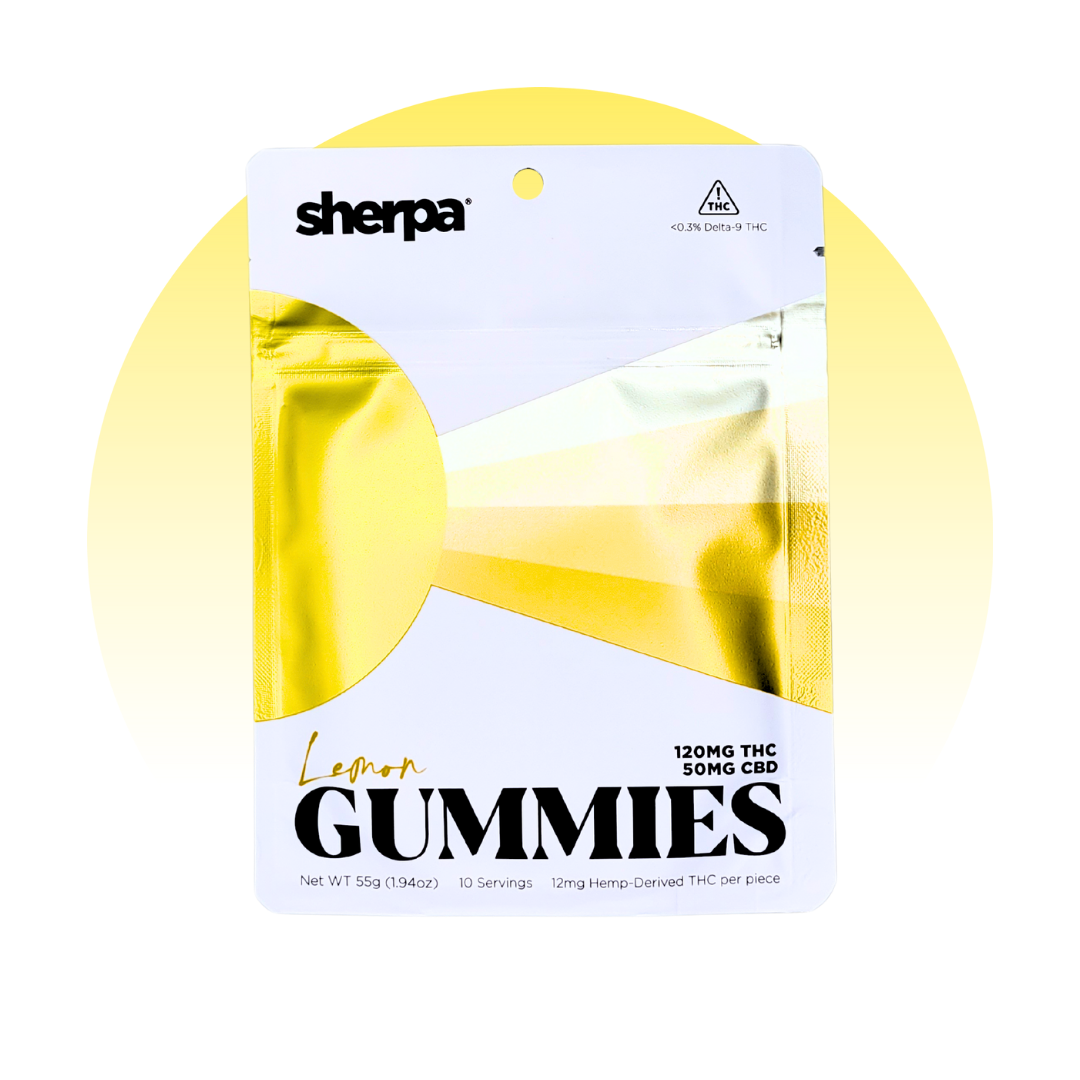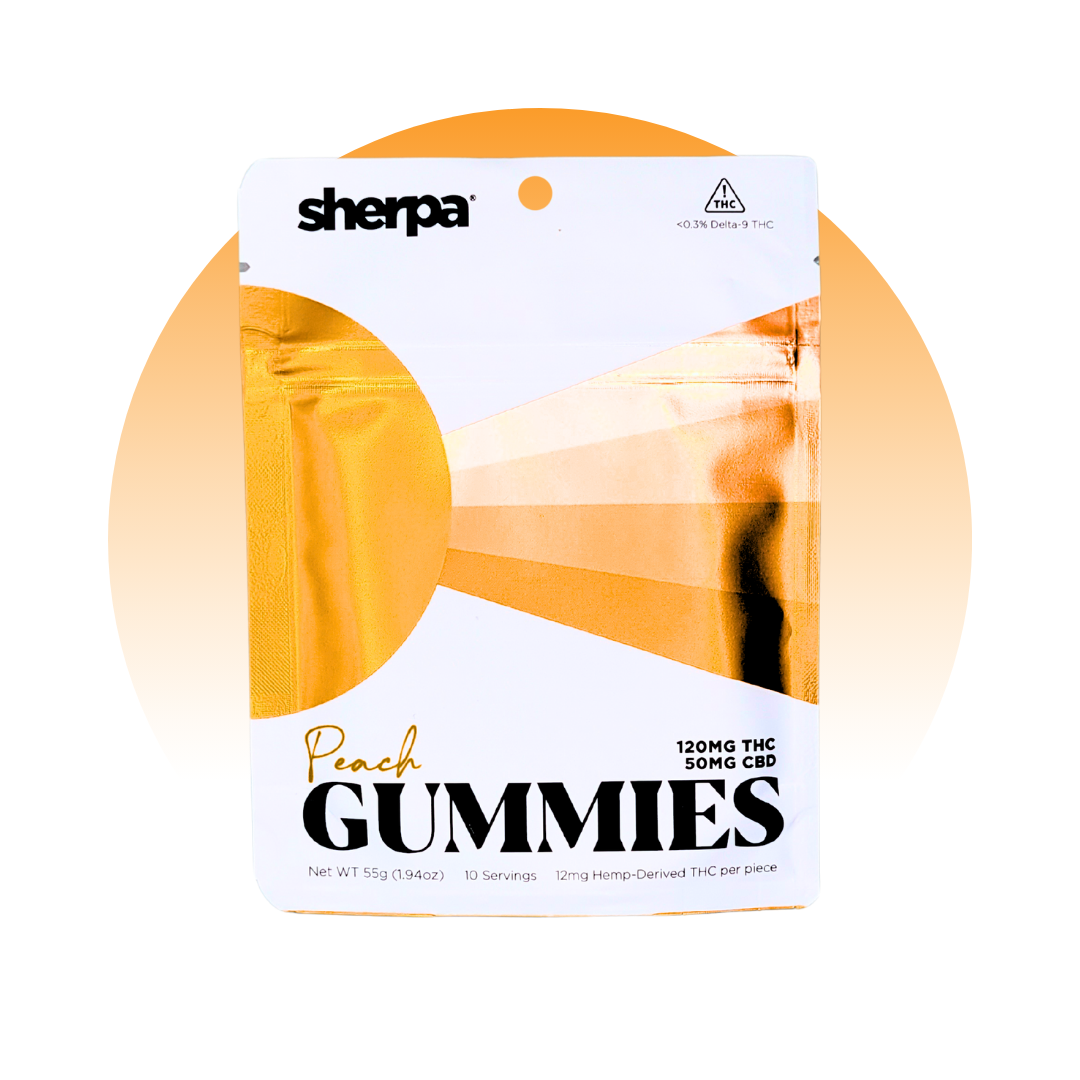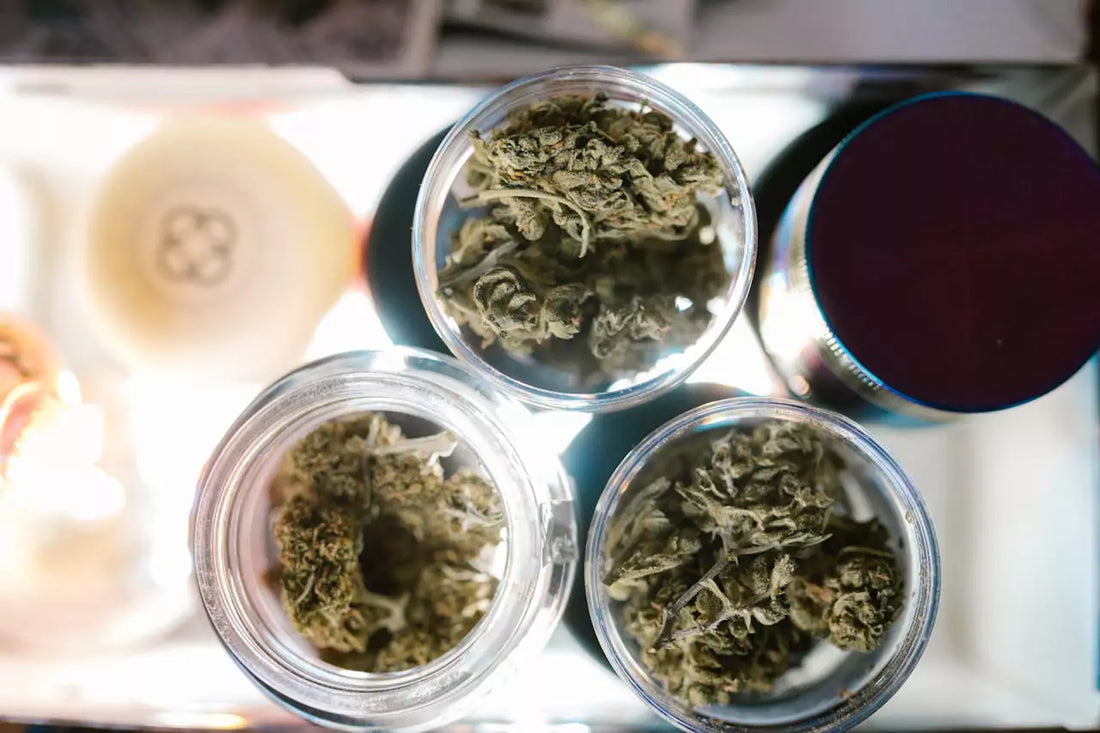
Our Blog
Does CBD Counteract THC in Edibles?
Does CBD Counteract THC in Edibles?
If you've been enjoying cannabis products for a while, or honestly, even if you've darkened the doorstep of a dispensary at least once in your life, you've probably heard two common acronyms in this space — THC and CBD. These two compounds — called cannabinoids — are the stars of the cannabis world, but in reality, they couldn't be more different.
With the explosion of cannabis edibles hitting the market, many folks are wondering what exactly THC and CBD are and if they complement each other or cancel out when consumed together in edibles.
The short answer? Maybe. But, like most things in the world of cannabis, the full answer isn't that simple. There's more nuance to this relationship between THC and CBD than most people realize. Here we're going to break down everything you need to know about how these two compounds interact with each other.
The Basics: THC vs. CBD
Before we dive into the specifics of how CBD and THC interact, let's take a second to understand what each of these cannabinoids does in the body.
Ultimately, the effects of both THC and CBD depend on how they interact with your body's endocannabinoid system — the ECS for short — a complex network of receptors and neurotransmitters that help regulate everything from mood to pain to appetite.
What THC Does
When you consume THC, whether through smoking, vaping, or edibles, the compound binds to CB1 receptors in your brain, which are part of the ECS. This binding is what causes the familiar effects of being "high," including a feeling of relaxation, of euphoria, an altered perception, an increased appetite, and, depending on the strain, sedation. That said, THC can also lead to some pretty negative side effects, such as anxiety, paranoia, or dizziness, particularly in larger doses or for people who aren't really sure what they're doing yet.
What CBD Does
CBD works a little differently. While it doesn't bind directly to CB1 receptors like THC, it interacts with other parts of the ECS to provide therapeutic benefits, including pain relief, anxiety reduction, and anti-inflammatory effects. The one big difference between the two is that CBD is non-psychoactive, meaning it won't get you high. Instead, it offers a more balanced, calming effect, which is why it's often used for therapeutic purposes like managing stress or sleep issues.
So, what happens when these two cannabinoids get together and mix it up? Does CBD mellow out the effects of THC, or does it enhance them? Let's check it out.
The Interaction: Does CBD Really Counteract THC?
Well… kinda. The science shows that CBD can modulate or even reduce the psychoactive effects of THC, but it doesn't entirely "counteract" THC in the sense that it cancels out its effects. Instead, CBD can act as a balancing agent, reducing some of the more intense or uncomfortable side effects that THC might produce. Here are a few ways it does that:
- Reducing Anxiety: One of the most notable ways CBD interacts with THC is by helping to mitigate the anxiety or paranoia that some people experience when consuming high doses of THC. Research suggests that CBD has anxiolytic (anxiety-reducing) properties, and it can potentially block THC's ability to bind to certain receptors in the brain that cause anxiety. So, if you're someone who tends to get a little paranoid after consuming edibles, a CBD-rich edible might offer some relief.
- Mellowing the High: CBD can help tone down the intensity of the THC high. If you've ever consumed an edible and felt a little too "out there" — a bit too high, dizzy, or overwhelmed — a CBD edible might help bring things back into balance. CBD doesn't eliminate THC's effects, but it can help mellow them out, creating a smoother, more manageable experience.
- Reducing THC's Side Effects: While THC's psychoactive effects can be enjoyable for some, others may find that it causes issues like dry mouth, dizziness, or an increased heart rate. CBD, on the other hand, doesn't produce these same side effects and can sometimes even counteract them. For example, CBD has been shown to reduce heart rate in some people, which can be helpful if you experience the racing heart effects that sometimes accompany THC.
The "Entourage Effect": A Team Effort
Rather than seeing CBD and THC as opposing forces, it's better to think of them as partners working together to create a more well-rounded experience. This phenomenon is often referred to as the entourage effect, where all of the cannabinoids, terpenes, and other compounds in cannabis work synergistically to enhance the overall effects.
So Instead of acting in isolation, these compounds interact in ways that amplify the therapeutic and psychoactive effects of the plant. All of the cannabinoids, as well as the terpenes — the aromatic compounds found in cannabis — play a role by influencing how these compounds interact with the body, adding further layers of effect, such as calming, uplifting, or pain-relieving properties.
This synergy is what makes whole-plant cannabis extracts, which include a broad spectrum of these compounds, often more effective than isolated cannabinoids like pure THC or CBD. The entourage effect suggests that when cannabis is consumed in its natural, unaltered form, the combined properties of cannabinoids and terpenes work together in a way that enhances their individual benefits. Think of it as a sum that's greater than the whole of its parts.
So now that you understand how these two compounds play off of each other, let's talk about how they're best combined.
CBD and THC in Edibles: How the Ratio Matters
When it comes to edibles, the ratio of CBD to THC can significantly affect how the combination feels. The edible form complicates things a bit more than smoking or vaping because it takes longer to kick in, and the effects last much longer. Additionally, because edibles are metabolized by the liver, THC is converted into a more potent compound called 11-hydroxy-THC, which can make the effects feel more intense.
Here are some common CBD to THC ratios you might encounter in edibles:
Equal Parts CBD and THC
A 1:1 ratio of CBD to THC is often considered a balanced option. For people who want to experience the effects of both cannabinoids without one overpowering the other, this ratio tends to provide a more even-keeled experience. In this ratio, CBD can help reduce the intensity of the THC high while still allowing you to enjoy the euphoria and relaxation that THC provides. This is a great option for beginners or those looking for therapeutic benefits without too much of a heady buzz.
High CBD, Low THC
If you're looking to enjoy the therapeutic benefits of CBD without getting too out there, a high CBD to low THC ratio may be a good choice. With a 3:1 or 5:1 ratio, the effects of THC are still present but much more subdued. You're more likely to experience the calming, anti-anxiety effects of the CBD with just a little bit of mild interference from the THC.
High THC, Low CBD
If you're looking for a full THC experience but want to temper the effects a bit, a low-CBD, high-THC ratio might be the right move. This ratio still lets you experience the full spectrum of THC's effects, but the CBD can help reduce the chance of unwanted anxiety and paranoia. This might not be the best option for first-time users or people who are sensitive to THC's effects, though.
How Long Does It Take for CBD and THC Edibles to Kick In?
When consuming edibles, the onset time for THC and CBD can vary depending on several factors, including metabolism, body weight, and whether you've eaten recently. On average, edibles take anywhere from 30 minutes to two hours to kick in. This is because the cannabinoids need to pass through your digestive system, be processed by your liver, and enter your bloodstream before they can reach your brain and produce effects.
Once the effects kick in, they can last anywhere from four to eight hours, depending on the dosage and your metabolism. The high from THC is typically more pronounced in edibles than when smoking, which is why it's important to start with a low dose and wait to see how you feel before consuming more. The ratio here doesn't really matter when it comes to timing — it's more about the intensity of the effect you're going to feel.
Are There Any Risks of Mixing CBD and THC in Edibles?
No, not really. The real risk is misunderstanding how these two compounds interact with each other and assuming that the CBD is going to counteract the THC and taking a lot more than you need. Trust us, full-spectrum cannabis gummies might feel a little more mellow, but they can be every bit as powerful as their distillate cousins.
Another consideration is your own body's unique chemistry. Some people may find that a high CBD-to-THC ratio works better for them, while others may prefer a more THC-dominant edible. The key is experimentation — but always take it easy and go slowly. There's nothing to be gained by taking too much too fast.
CBD and THC in Edibles — A Balanced Experience
So to answer the question if CBD counteract THC in edibles, the answer is no. CBD doesn't exactly "counteract" THC; rather, it moderates and modulates its effects, helping to create a more balanced experience. If you're someone who enjoys the relaxing effects of THC but sometimes finds it a little too intense or anxiety-inducing, incorporating CBD can help smooth things out and make the experience more enjoyable.
Ultimately, the interaction between CBD and THC in edibles depends on the ratio of the two cannabinoids, your body's unique chemistry, and the specific effects you're looking for. Whether you're a novice or a seasoned cannabis user, understanding how CBD and THC work together can help you find the right edible for your needs — and make the most of your cannabis experience.